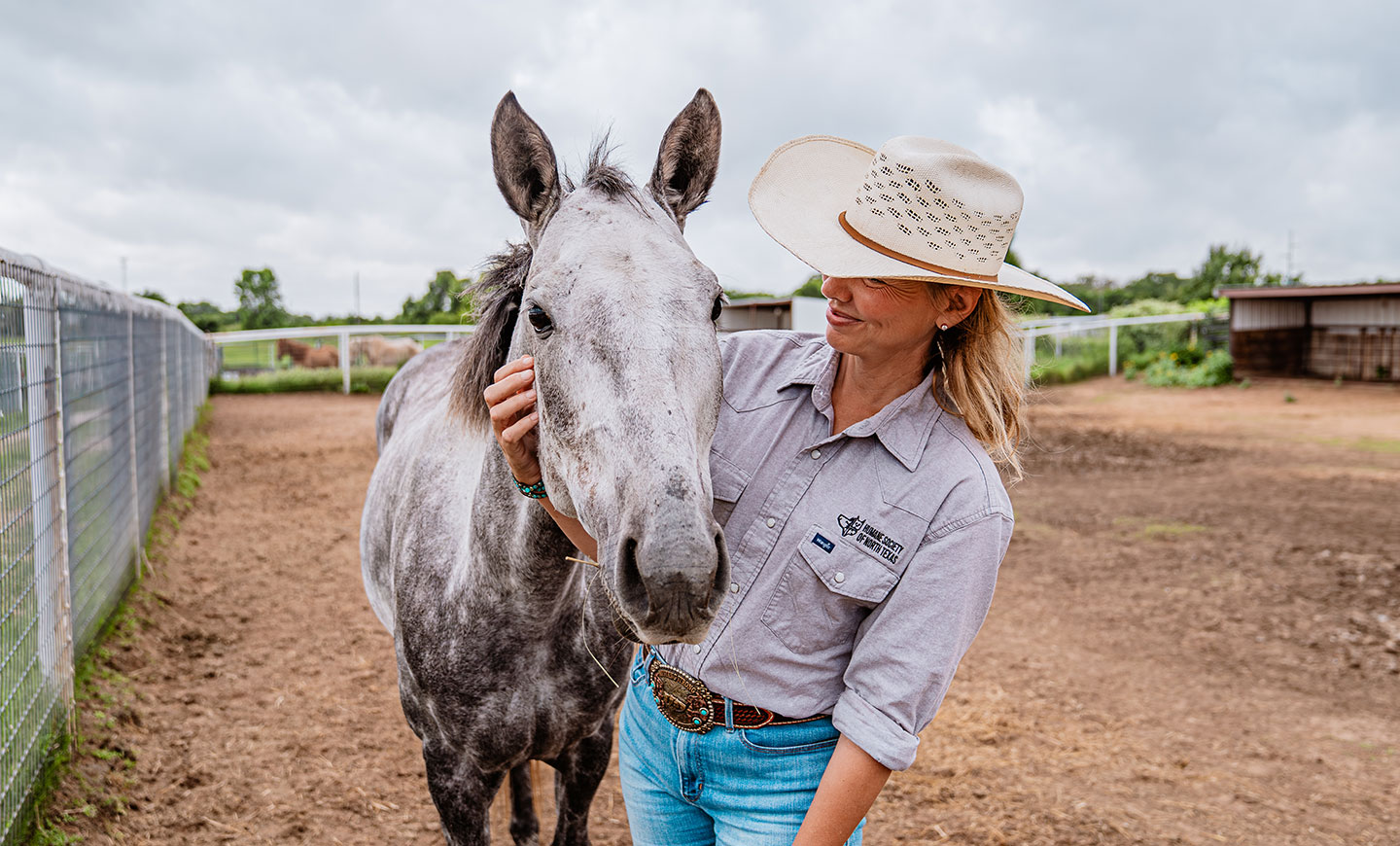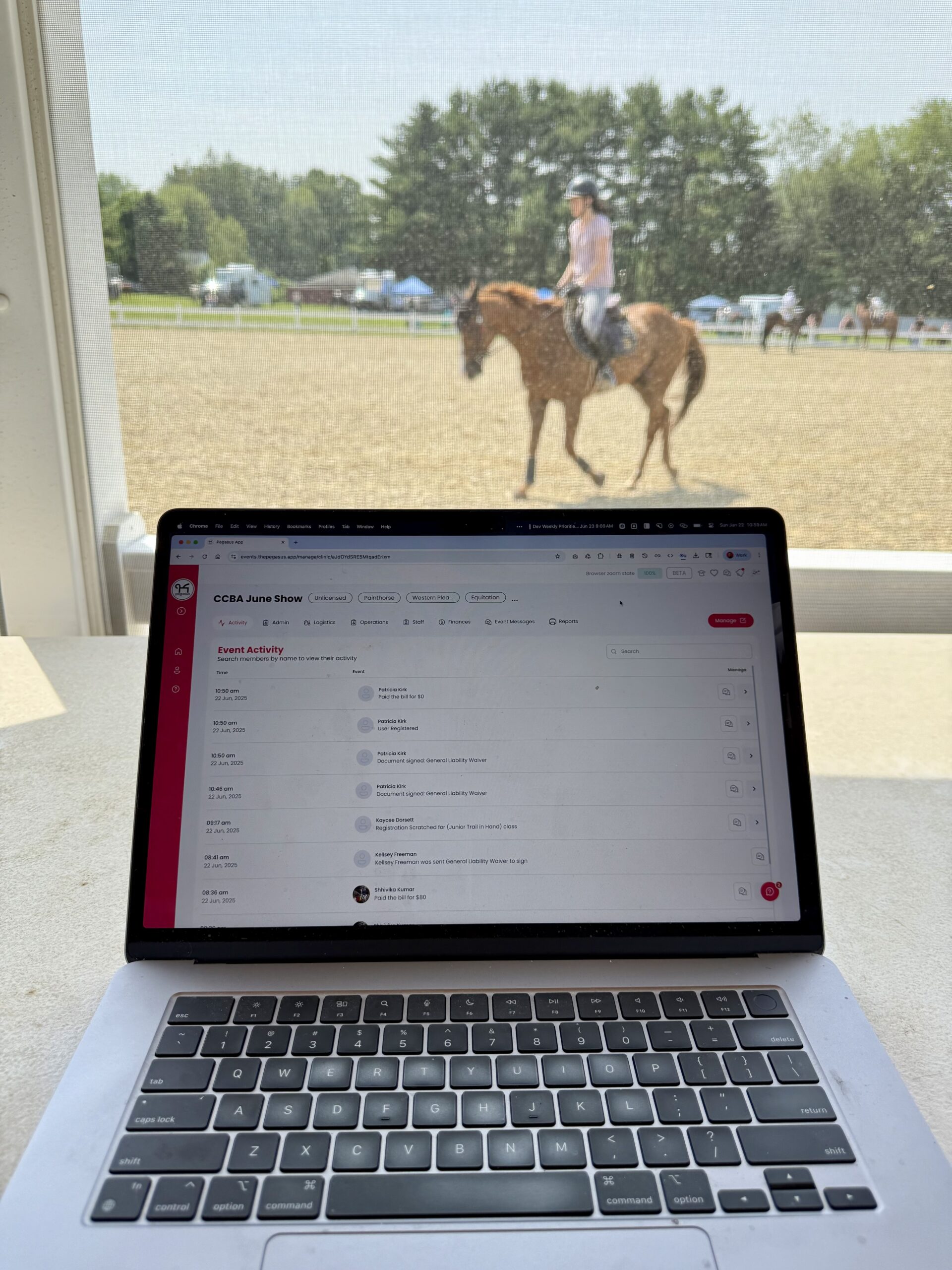By Lori Tankel, Author of Common Sense Horse Keeping
It’s a busy time for Mother Nature, unleashing hurricanes, floods, wildfires, droughts, heatwaves and other disasters to remind us that we are just peons in her grand scheme of life and she can make our lives miserable in an instant. If you have horses, this is a particularly stressful time as we figure out what is best for our animals in such situations.
If you are staying put during a disaster, such as a hurricane, you need to have a plan. This includes doing the following:
- Fill every bucket, trash can, and other containers with fresh, clean water. At a minimum, plan on 15 gallons of water per horse per day. Therefore, consider investing in barrels to be used for water storage. You cannot rely on the fire department to provide water.
- Pick up enough hay and feed to last a week in case roads become impassable or the feed store is damaged and can’t open. Cover with a tarp to keep dry and safe.
- Pick up and store away every item that isn’t tied down: flower planters, flags, barn decorations, chairs, tools, etc. Even if this turns out to be just a drill, at least your barn is getting a good cleaning and organizing! Knock over jumps and any other object that can blow over.
- Identify potential low areas around the barn and fix them. Make sandbags and add dirt, rock, etc., to low-lying areas.
- Identify your horses using at least two methods of ID:
- Body marking with livestock paint. Available at Tractor Supply and from most livestock supply companies. Be aware that these dry out, so check and replace them as needed. Put your address and phone number on the sides of your horse.
- Write your info on the hooves with a Sharpie.
- Neck banding
- ID tag on halters, making sure that when leaving halters on, you use a breakaway halter only
- Braid ID into mane or tail. Use a small baggie with emergency info inside, or make a laminated tag. Laminated luggage tags from any office supply store work well. With a baggie, you can include more info, such as dietary concerns or medical issues, in case your horse is lost
- When using a phone number, be sure to include a second number, either a landline or the number of a friend or relative from out of state. Just be sure to let them know. It is not uncommon for phone lines to be down in a major hurricane or after a tornado
- Never attach your horse’s Coggins to his body because if your horse becomes lost and is picked up by an unscrupulous person, they can claim they own the horse
- Microchipping is the best bet to identify your horse. It is becoming more common with breed registries and will aid in getting a lost horse back home
- Keep current photos of your horse- along with their Coggins and vet records- in your personal files so you can identify them should they become missing. Store this in a safe place
- Attach reflective tape to your halter. Some livestock supply stores also carry reflective paper strips to apply around the hooves and neck. These will help make the horse visible to cars should it get loose
- Inform others of your plans

If you do decide to evacuate, whether due to wildfires, a catastrophic hurricane heading your way or for another event, you need do have an evacuation kit ready:
Evacuation Kit
- 3- 7 days’ supply of grain and hay for each animal
- Blankets, if needed
- Cash
- Copies of vet records, Coggins, and proof of ownership. Keep copies in the truck or dressing room ahead of time: Keep them in your Emergency Binder
- Dog/cat carriers
- Duct tape
- Emergency contact list: vets, friends, relatives, evacuation sites: Keep them in your Emergency Binder
- Emergency or weather radio
- Fans
- First Aid Kit
- Flashlights
- Fly Spray
- Filled gas can
- Heavy work gloves
- Identification for each horse, a minimum of 2 methods
- Instructions for feeding and medications
- Knife
- Leg wraps
- Map of local and alternative evacuation routes (phone service may not be working)
- Medications
- Extra halters and leads
- Plastic tubs to store water and feed
- Rope
- Supplements
- Tack and supplies
- Tarps
- Temporary Fencing
- Tools in case the vehicle gets stuck (shovel)
- Twitch
- Water for several days: at least 15 gallons per horse per day
- Water and feed buckets
- Wire cutters
- Water purifier
We cannot get through our time on this planet unscathed by Mother Nature. As a horse owner, it is your responsibility to your horse to be as prepared as possible! How you come through the storm will depend upon how well you are prepared.

About Common Sense Horse Keeping
Common Sense Horse Keeping is an essential guide for horse owners and stable managers, providing comprehensive advice on proper horse care. Tailored for those managing a boarding business as well as individual horse owners, this book covers critical topics such as nutrition, 1st aid, disaster planning, fire prevention, and pasture management. It also offers insights on choosing the right boarding stable and managing horses at home.
Readers will learn to interpret hay analyses, perform fecal egg counts, and adopt environmentally friendly practices in the barn. With practical tips from social media, stable owners can enhance their management skills, and horse owners can become better boarders. The book explores various boarding options, amenities, services and fee structures. Contracts, insurance, employees and barn rules are discussed. It also delves into the implementation of disaster plans and the importance of understanding horse’s mental well-being, among other valuable subjects.












